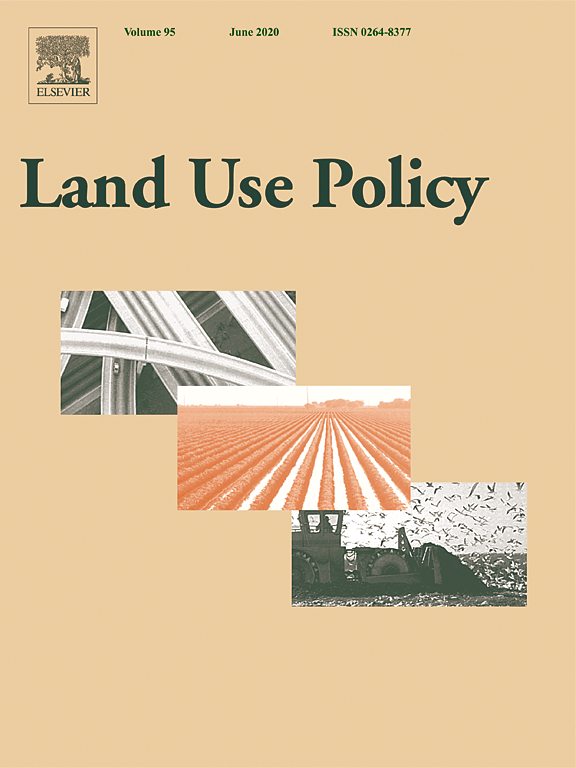Location
Land Use Policy is an international and interdisciplinary journal concerned with the social, economic, political, legal, physical and planning aspects of urban and rural land use. It provides a forum for the exchange of ideas and information from the diverse range of disciplines and interest groups which must be combined to formulate effective land use policies. The journal examines issues in geography, agriculture, forestry, irrigation, environmental conservation, housing, urban development and transport in both developed and developing countries through major refereed articles and shorter viewpoint pieces.
Land Use Policy aims to provide policy guidance to governments and planners and it is also a valuable teaching resource.
ISSN: 0264-8377
Members:
Resources
Displaying 91 - 95 of 279Technical and social knowledge discontinuities in the multi-objective management of private forests in Finland
Managing forests sustainably for multiple objectives requires multi-faceted socio-technical knowledge. This study explores the challenges of using knowledge within social and technical knowledge systems in decision-making about and the management of privately-owned forests in Finland. We define the technical knowledge system as the collection of standardized forms of knowledge and the IT systems supporting their storage and distribution. The social knowledge system consists of people who use and generate knowledge, as well as the societal norms that regulate their actions.
The impact of smallholder farmers’ participation in avocado export markets on the labor market, farm yields, sales prices, and incomes in Kenya
Smallholder producers in sub-Saharan Africa are often unable integrate into markets and access high-value opportunities by effectively participating in global chains for high-value fresh produce. Using data from a survey of large avocado farmers in Kenya, this study examines the determinants and impacts of smallholder-producer participation in avocado export markets on labor inputs, farm yields, sales prices, and incomes, using a switching regression framework to control for selection effects.
Impacts of drought-tolerant maize varieties on productivity, risk, and resource use: Evidence from Uganda
Weather variability is an important source of production risk for rainfed agriculture in developing countries. This paper evaluates the impacts of the adoption of drought-tolerant maize varieties on average maize yield, yield stability, risk exposure and resource use in rainfed smallholder maize farming. The study uses cross-sectional farm household-level data, collected from a sample of 840 farm households in Uganda. The adoption of drought-tolerant maize varieties increased yield by 15% and reduced the probability of crop failure by 30%.
Considering time in land use planning: An assessment of end-of-life decision making for commercially managed onshore wind schemes
Despite its ostensible future orientation, research on land use planning has given relatively little consideration to temporality, either empirically or conceptually. The need for analytical advances becomes clear when considering the treatment of ‘end-of-life’ issues for renewable energy facilities like onshore wind. Expanding renewables is central to sustainable energy futures yet land use regulation often treats consents as ‘temporary’, raising questions about how the trajectories of energy transition are maintained into the future.
Environmentalism and localism in agricultural and land-use policies can maintain food production while supporting biodiversity. Findings from simulations of contrasting scenarios in the EU
Increasing food production without further harming biodiversity is a key challenge of contemporary societies. In this paper, we assess trade-offs between agricultural output and two key agri-environmental indicators in four contrasting scenarios for Europe in 2040. The scenarios represent different storylines encompassing assumptions on macro-economic drivers (e.g.



